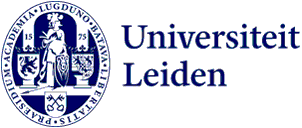Debate | Roundtable discussion
How the Fossil Fuel Industry (ab)uses the Legal System: The Urgent Call for Binding Regulations to Protect People and Climate
- Maria Gabriela Palacio Ludeña
- Pablo Fajardo Mendoza
- Mayra Piaguaje
- Bart-Jaap Verbeek
- Juliana Rodrigues de Senna
- Date
- Friday 10 November 2023
- Time
- Address
-
Wijnhaven
Turfmarkt 99
2511 DP The Hague - Room
- 2.02
According to a recent analysis by Global Witness, five Western private gas and oil corporations are projected to spend over 3.1 trillion USD until 2050 on fossil fuel investments, severely threatening the Paris Agreement's goal of limiting temperature rise to 1.5 degrees Celsius. What changes or regulations could be introduced in environmental and climate justice to prevent corporations from compromising our ecology? What lessons can we learn from the RWE and Chevron cases, which show how fossil fuel corporations (ab)use the legal system to avoid paying fines and compensations for environmental damages? How do transnational use investment arbitration or lawfare to claim compensation for lost profits?
We would like to invite you to a roundtable discussion where we can explore the intricacies of corporate power, law, and socio-ecological struggles informed by Latin American discourses and practices.
Date: 10 November 2023
Time: 15:00-17:00
Location: Room 2.02, Wijnhaven building (Turfmarkt 99, 2511 DP Den Haag)
Registration: via email to m.g.palacio.ludena@hum.leidenuniv.nl
Guests
Pablo Fajardo Mendoza
Pablo Fajardo Mendoza is a prominent Ecuadorian lawyer and activist who has been fighting against the socio-environmental impacts of oil extraction in the Ecuadorian Amazonas since 1993. Along with indigenous and peasant communities, he is working to hold multinationals accountable for the present and future environmental damages caused by oil extraction. Pablo is the lead lawyer of the Union of People Affected by Texaco (now Chevron), representing over 33,000 individuals affected by the oil industry's harmful practices.
Mayra Piaguaje
Mayra Piaguaje is a leader of the Siekopai people, an indigenous community in the Amazon that opposes extractive industries and seeks to protect their ancestral knowledge and traditions while living in harmony with nature. She is mainly focused on voicing the situation of women within her community.
Bart-Jaap Verbeek
Bart-Jaap Verbeek is a researcher and campaigner at SOMO (Centre for Research on Multinational Corporations). He specialises in studying the impact of transnational trade and investment governance on labour, environment, democracy, climate, and human rights. His research focuses on how trade and investment agreements promote and safeguard transnational capital flows and their implications for fair and sustainable economic growth.
Juliana Rodrigues de Senna
Juliana Rodrigues de Senna is a historian from Salvador, Brazil, who holds a Master's in International Relations from the Federal University of Bahia. Currently based in the Netherlands, Juliana works for TNI's Corporate Power team. She co-facilitates the Global Campaign to Reclaim Peoples' Sovereignty, Dismantle Corporate Power and Stop Impunity, and the Global Inter-parliamentary Network Working Group, which defends a strong and effective Binding Treaty.
Moderator
Maria Gabriela Palacio
Maria Gabriela Palacio is a university lecturer at Leiden University's Faculty of Humanities, where she specialises in development studies and political economy. Her research focuses on social policies and how they shape political subjectivities in Latin America. She teaches courses on political economy, nation-building, neoliberalism and social policy at the Institute for History, Latin American Studies programme, International Studies programme, and MA international relations.


